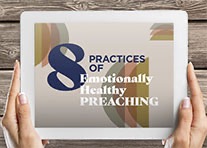Success
Success is first and foremost doing what God has asked us to do, doing it his way, and in his timing. Years ago, when I was first wrestling with redefining success, I imagined what it might be like to come before God’s throne at the end of my earthly life and say, “Here, God, is what I have done for you. New Life now has 10,000 people.” Then he would respond, “Pete, I love you, but that was not what I gave you to do. That task was for a pastor in another part of New York.” Have you ever considered that your ministry, organization, or team may be growing and yet actually failing? Think with me for a moment about some of God’s faithful and, hence, most successful leaders: Jesus said of John the Baptist, “Among those born of women none is greater than John” (Luke 7:28). Yet, if we were to create. Read more.





